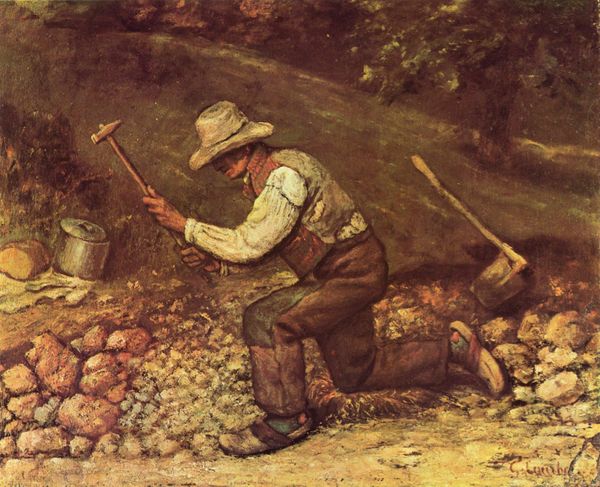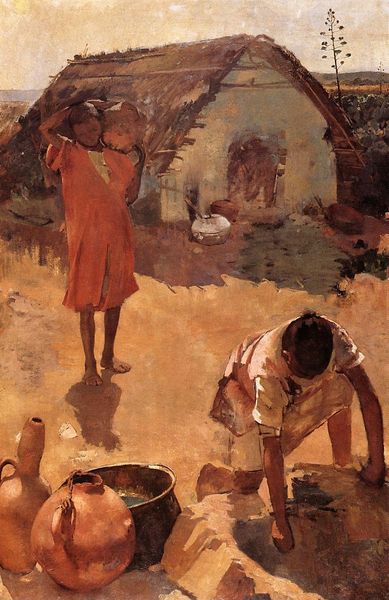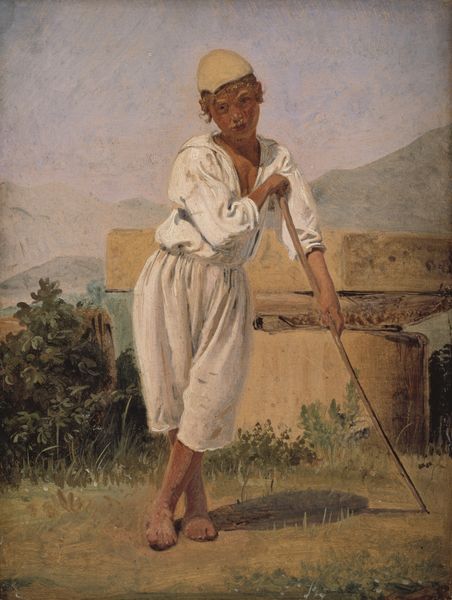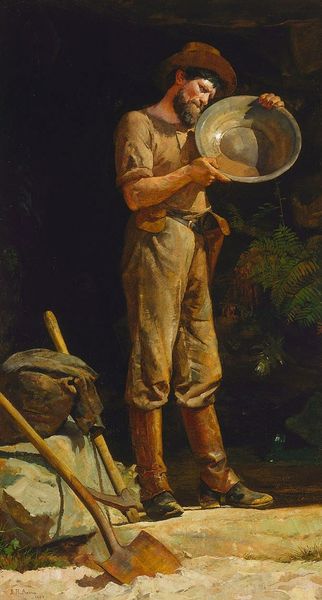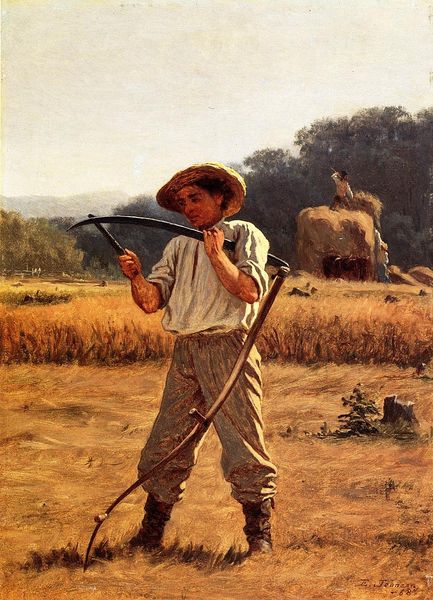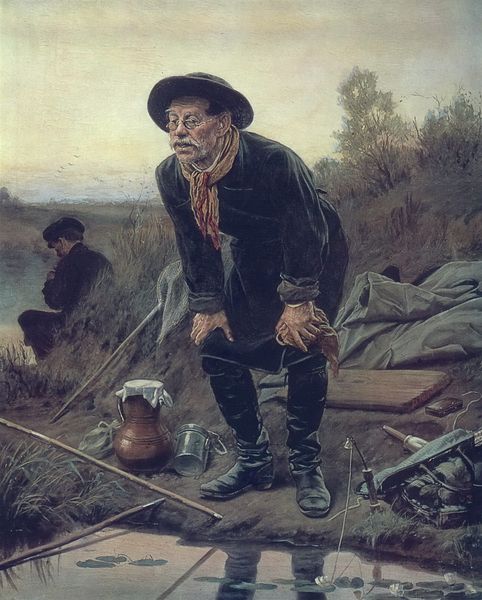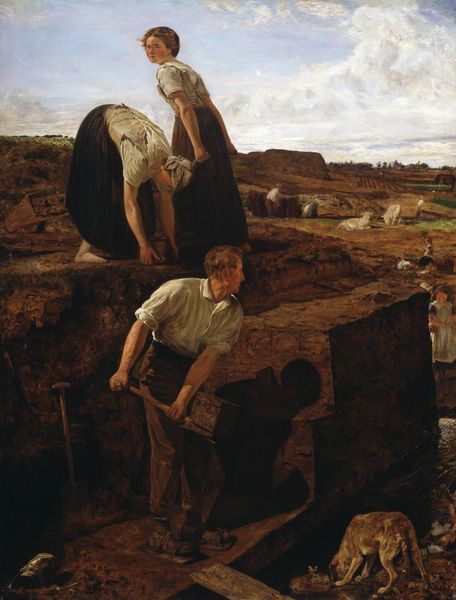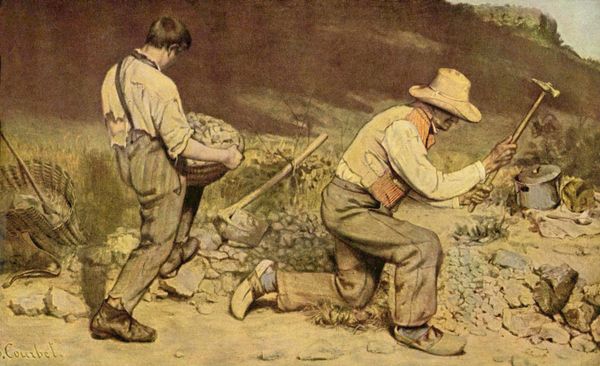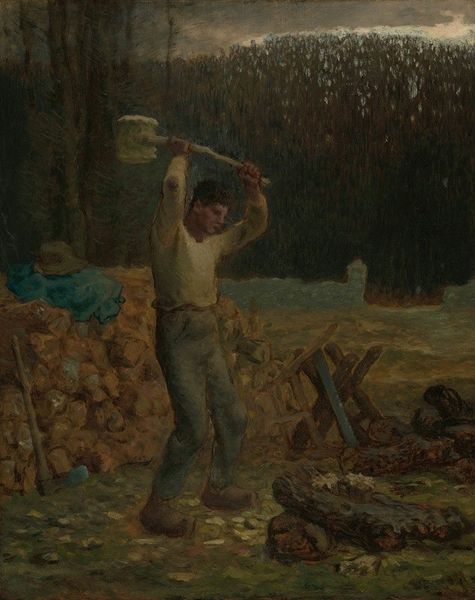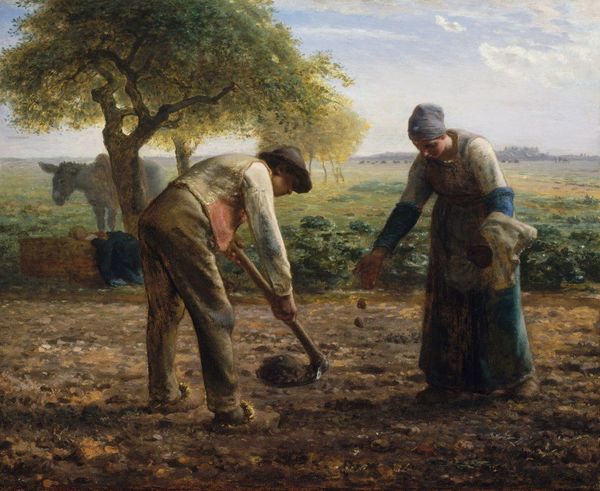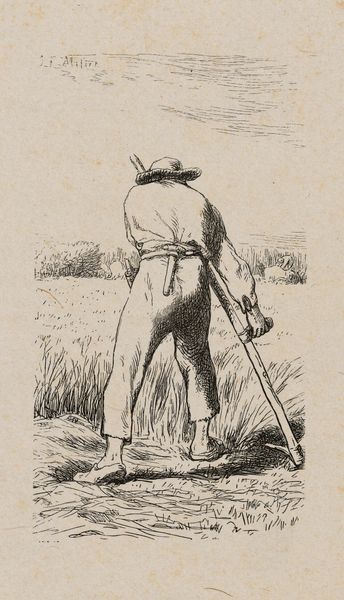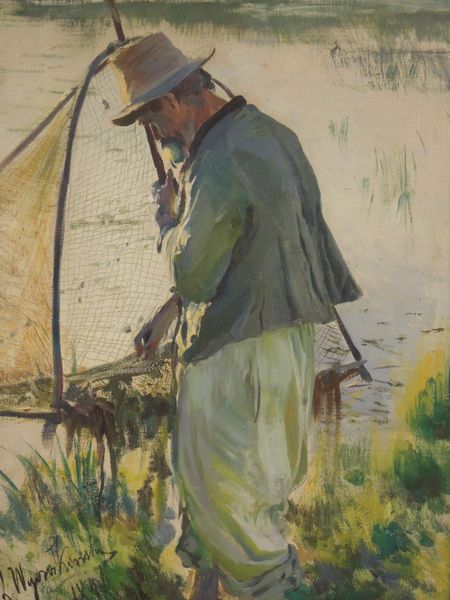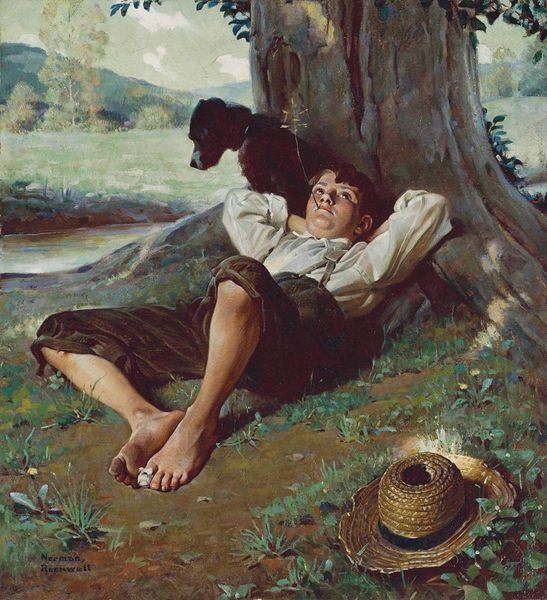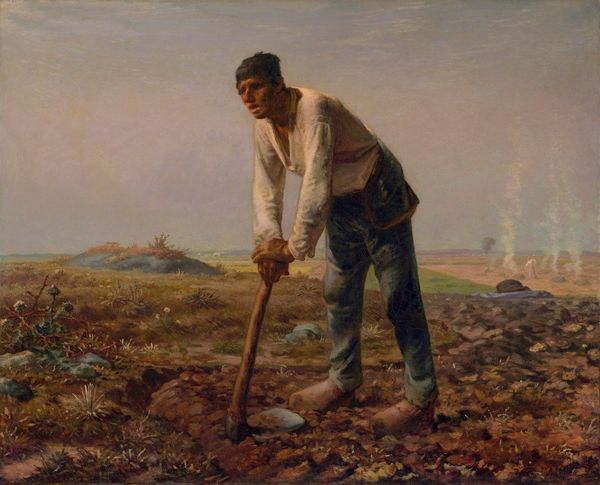
painting, oil-paint
#
portrait
#
painting
#
oil-paint
#
landscape
#
oil painting
#
watercolour illustration
#
genre-painting
#
realism
Copyright: Public domain
Curator: Right, let's consider "Interrupted Whetting" by Jose Ferraz de Almeida Junior, created in 1894. It's currently housed at the Museo de Arte de Sao Paulo. What strikes you first? Editor: Immediately? The light, it shimmers across the water, makes the whole scene feel hot, humid, and suddenly frozen. The guy looks like he’s been caught mid-motion, and frankly, slightly annoyed! Curator: Indeed. Consider how Almeida Junior engages with Realism here. We see the manual labor, rendered with exacting detail—look at the texture of the axe handle, the roughspun fabric of his pants. This isn’t idealized peasant life. Editor: No, it’s the sweat and toil. Though there's a strange tranquility to it as well. The blurred background creates this interesting juxtaposition. It’s like he's stopped for a quick daydream, but only for a brief moment. Curator: That’s insightful. The “interruption” in the title hints at a social dimension. Is someone calling to him? Or is it merely the viewer’s presence that breaks the moment? The materials, oil on canvas, emphasize the tangibility of everyday labor in the Brazilian countryside. Editor: Perhaps. Or, is it deeper? Is it society stopping to realize this work takes place? He's stuck, caught. There is such grace here as his hands beckon you to just wait a moment! Also that water gourd, is that water he drinks while working so tirelessly? Curator: Precisely. And think about what the interruption signifies. The demands on his labor are always present. It raises the question, "Who controls the laborer’s time and resources?" And where are the women's representations doing hard labor in Brazil? That would be more on theme! Editor: I like to believe its much simpler than we are making it out to be! Either way, it really feels like more than a snapshot of labor. I can hear the trickling water; feel the oppressive sun bearing down. It really encapsulates a much bigger emotional world within this singular image, but it feels very intimate, right? Curator: Absolutely, its accessibility is undeniable and opens discourse. And yet, by examining the materials, by interrogating the social conditions depicted, we gain a deeper understanding of Almeida Junior’s project and the cultural context from which it emerges. Editor: Alright, and to sum it up, I can say this piece stuck to my ribs. Let's find some tea.
Comments
No comments
Be the first to comment and join the conversation on the ultimate creative platform.
